Envirofit: A State-of-the-Art Manufacturing and Production Facility in Ghana
In this edition of the Clean Cooking Alliance’s Leadership Series, Anne Hyre, Executive Director of the Bettering Human Lives Foundation, speaks with Tim Bauer, Co-founder and President of Envirofit, about his company’s clean cooking operations, including a new manufacturing facility in Ghana.
Elena Hyre contributed to this interview.
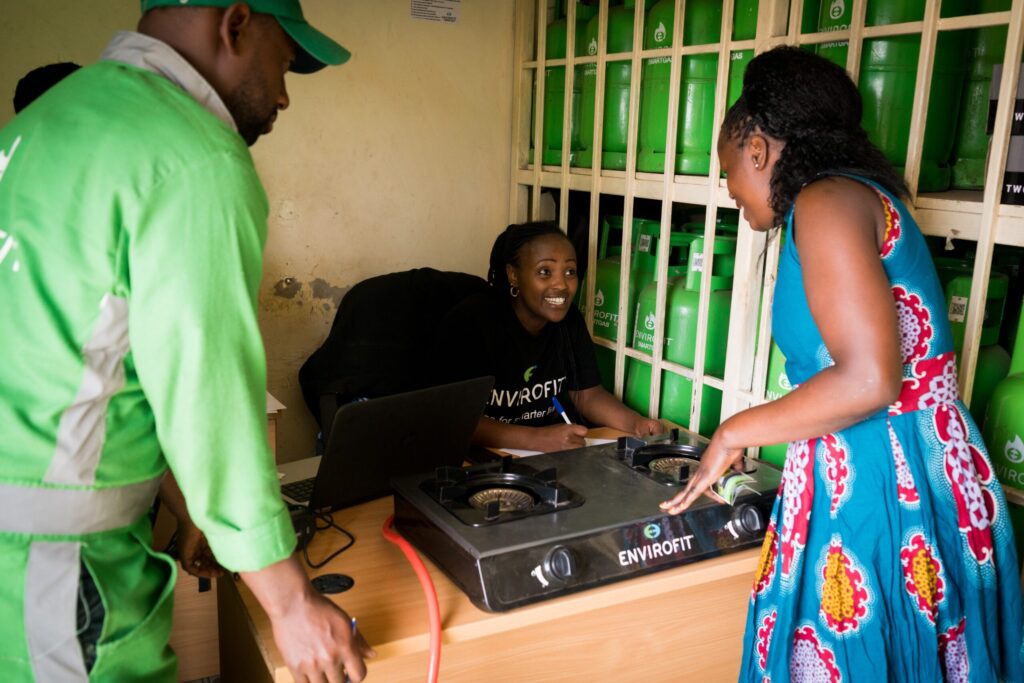 A SmartGas client © Envirofit
A SmartGas client © Envirofit
Anne Hyre (AH): Can you briefly describe Envirofit’s products and services, specifically in Ghana?
Tim Bauer (TB): Envirofit is a technology company that innovates and delivers clean energy products and services to low-income markets. In Ghana, we offer a full range of cooking solutions to move people up the energy ladder—from biomass to LPG—for both household and commercial cooking markets. Our approach includes purpose-built financing models and deep local partnerships to ensure effective, last-mile distribution of our products.
AH: What specific products do you offer?
TB: We manufacture, produce, distribute, and sell advanced biomass cookstoves and LPG cooking solutions tailored for both commercial and household use. We are also launching the 2nd Generation SmartGas™ product line (a pay-as-you-cook™ LPG technology) this year in Ghana and other key Envirofit markets across sub-Saharan Africa.
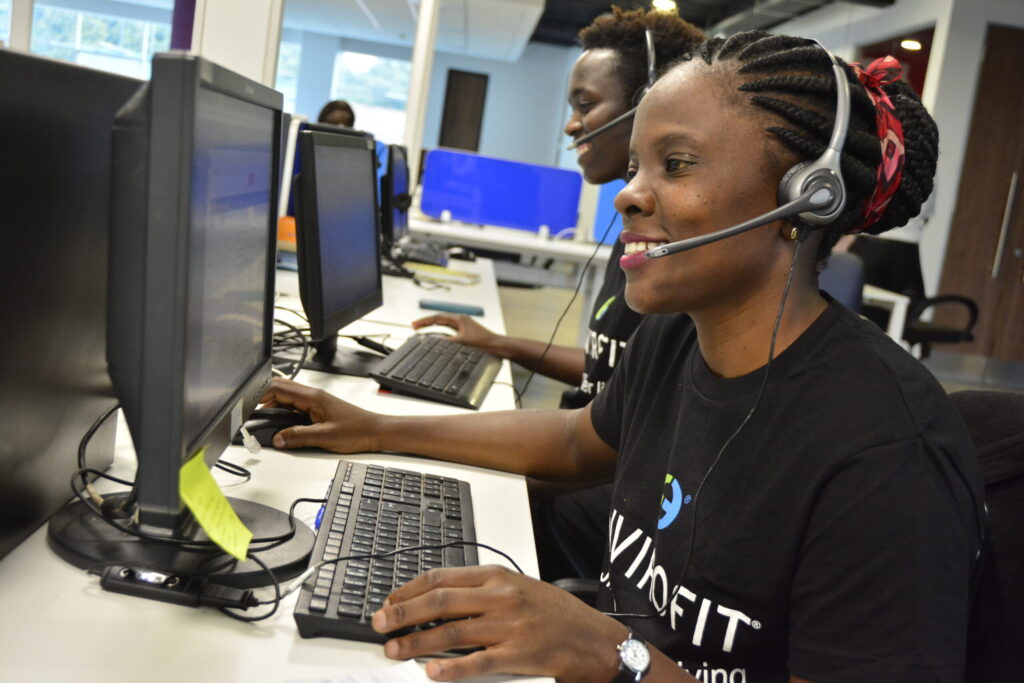 Customer service office © Envirofit
Customer service office © Envirofit
AH: How has Envirofit and its product line evolved over time?
TB: We have always focused on developing “voice of the customer” centric products and solutions to improve energy access and help eliminate energy poverty. As a first mover in the clean cooking space, we initially focused on helping people transition from traditional cooking methods to improved biomass cookstoves. Over time, our goal has evolved toward moving customers up the energy ladder to cleaner fuels like LPG. The evolution reflects both user readiness and broader environmental goals.
[ Stay up to date on the most recent Leadership Series article. Sign up to receive our newsletter. ]
AH: Why is investing in LPG stoves and related technology so critical right now?
TB: The environmental impact of traditional cooking is significant, especially deforestation in sub-Saharan Africa, where 4 out of 5 households still rely on solid fuels. The demand for these fuels contributes heavily to deforestation and forest degradation. The health and economic consequences of cooking with polluting stoves are also serious, contributing to over 800,000 premature deaths a year (mostly women and children) across sub-Saharan Africa.
There’s strong demand for clean LPG, but most people can’t afford the upfront initialization or conversion costs. That’s where Envirofit delivers impact: our innovations close that gap and enable transition through accessible products, technologies, and financing.
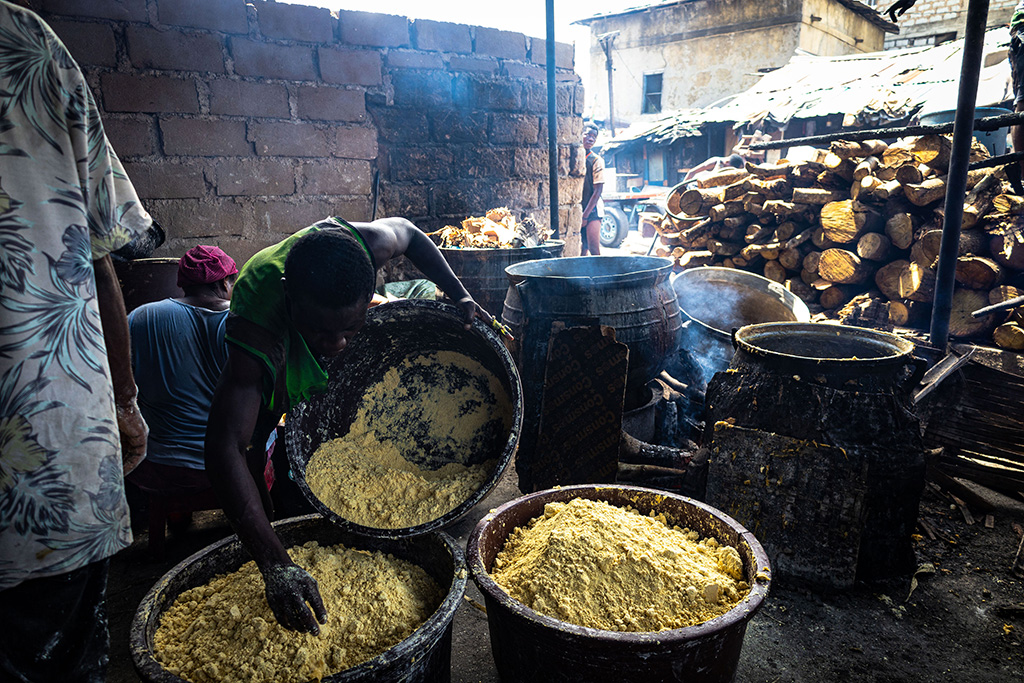 Firewood-based cooking in Ghana © Bettering Human Lives Foundation
Firewood-based cooking in Ghana © Bettering Human Lives Foundation
AH: Why did you choose to base operations in Accra, Ghana?
TB: Ghana is a strategic base for Envirofit operations in West Africa. It’s easily accessible, has strong trade routes, and is English-speaking, which smooths our operations. We’ve also seen tangible support from government and other stakeholders who value not just technology transfer, but domestic innovation. Ghana is a leader in clean cooking policy and carbon credit initiatives like Article 6, which aligns well with our strategy.
AH: Tell us about this new manufacturing and production facility.
TB: We are very proud of this new clean cooking manufacturing facility in Accra, Ghana—a significant step forward in expanding energy access across the continent.
This facility is more than just local manufacturing. It’s a hub for innovation, designed to support numerous forms of clean energy access from commercial to household LPG stoves, to ultra-modern biomass stoves to our life-changing SmartGas™ pay-as-you-cook™ IoT technology. The facility is outfitted with state-of-the-art manufacturing technology and run by an expert team of African operators and technicians. We are fully equipped to deliver clean energy solutions that meet local, regional and multi-national needs and drive real, scalable impact.
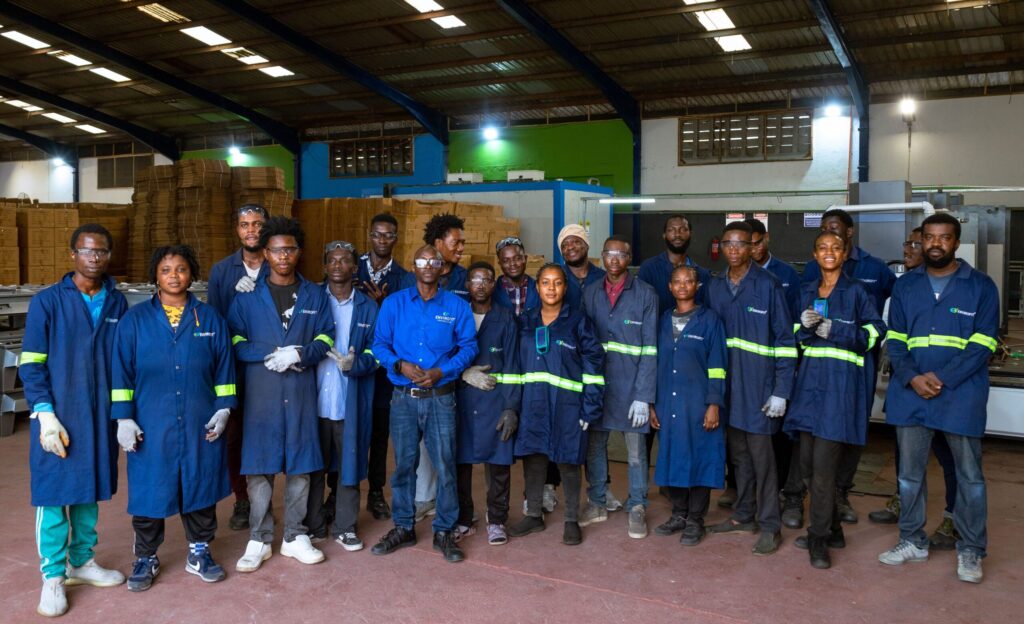 Team in Ghana© Envirofit
Team in Ghana© Envirofit
AH: What have been the biggest challenges during the construction and setup of your manufacturing facility?
TB: One of the biggest challenges in setting up business units across emerging markets is that there’s often no easy, centralized way to find specific equipment, materials, parts, services etc. In Ghana, there’s no “yellow pages” or online directory for most suppliers. If a supplier has a website or social platform, it’s usually not overly detailed. That said, almost anything you want is available somewhere, but without knowing exactly where to look, you can spend hours—or even days—tracking it down.
Having a strong local team is essential. Collectively, this team will know the right people, the right places, and how to navigate the system. With that knowledge, you can often obtain what you need in hours instead of a weeks, and that makes a huge difference when establishing a factory or operational base.
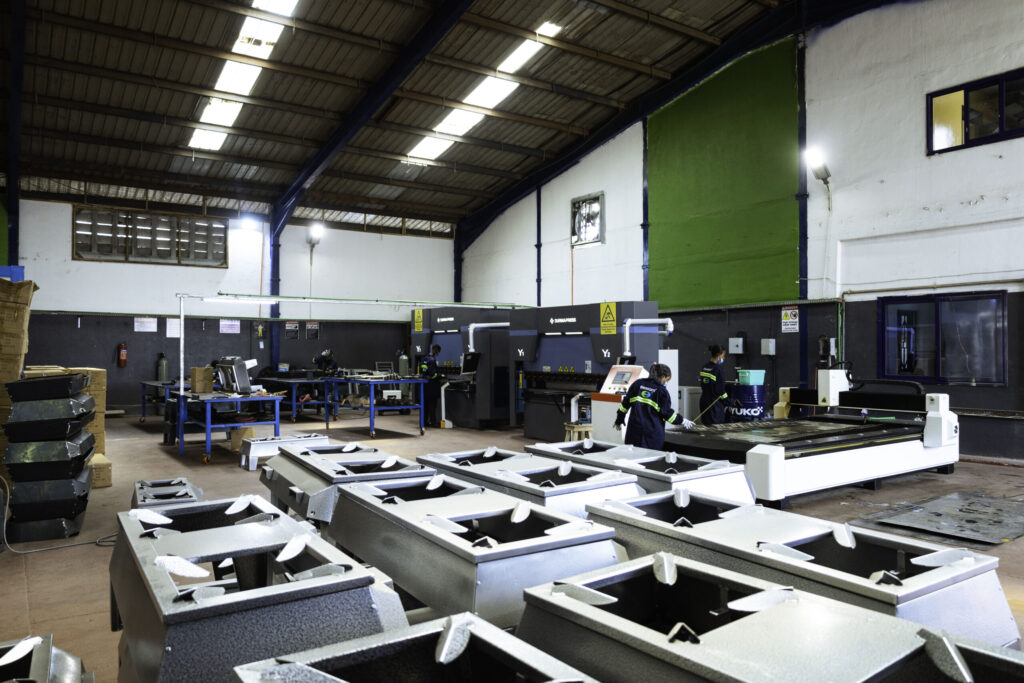 Manufacturing facility in Ghana © Envirofit
Manufacturing facility in Ghana © Envirofit
AH: What is SmartGas, and what is your goal with that initiative?
TB: SmartGas is our pay-as-you-cook™ LPG technology, and it’s a game changer for clean energy access. The majority (80%) of households in sub-Saharan Africa still cook with solid fuels. SmartGas allows them to incrementally transition to cleaner fuel without needing to pay upfront. Our goal is to work with existing gas marketers, distributors, and retailers, helping them expand to new customers who might not otherwise afford LPG access.
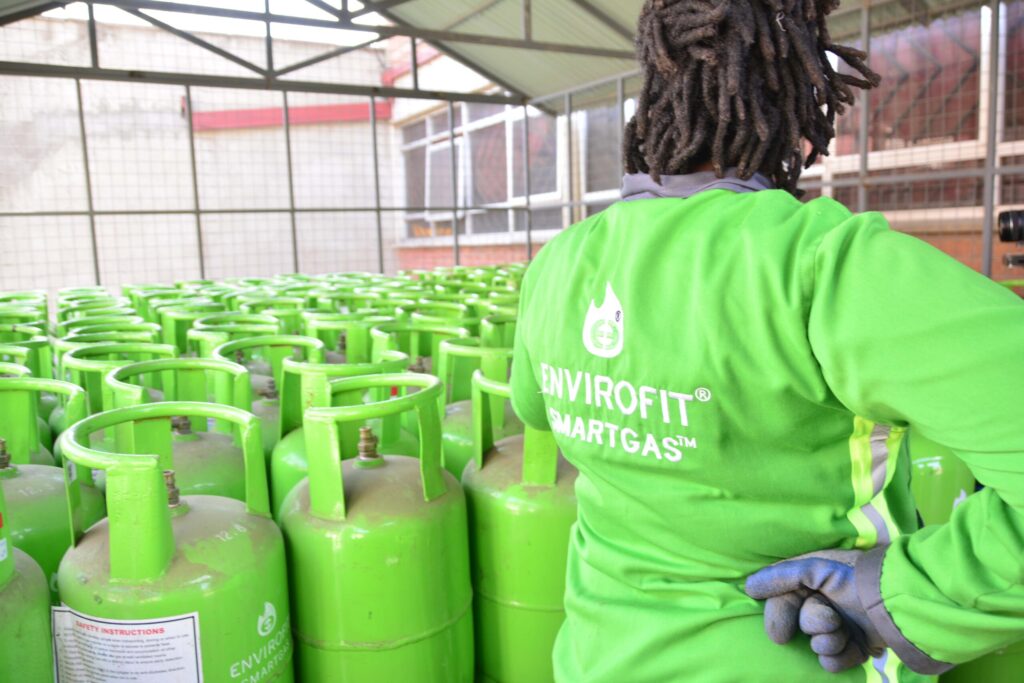 SmartGas operations © Envirofit
SmartGas operations © Envirofit
AH: What is your five-year vision for the Ghana facility?
TB: We expect to expand significantly, supporting both SmartGas and household LPG growth. While Ghana will remain a regional hub, we will continue to replicate the model in other core markets as our footprint and market demand continue to grow across West Africa.
AH: How has The Bettering Human Lives Foundation contributed to Envirofit’s work?
TB: The Bettering Human Lives Foundation has been a critical partner for our growth and innovation. Their support helps us raise visibility—not just for fundraising, but also for investor engagement. It also positions us clearly as a gas solutions provider. Aligning with partners like the Clean Cooking Alliance and the Bettering Human Lives Foundation creates a united front for clean cooking advocacy, which is crucial for gaining policy support and unlocking financial incentives like reduced tariffs on clean cooking equipment. The Bettering Human Lives Foundation investment has been instrumental in helping Envirofit break ground and complete construction on our new facility, supporting everything from equipment procurement to structural needs like painting and roofing. More than just financial backing, they’ve shown real belief in the vision.
AH: Any final thoughts or key points you’d like to emphasize?
TB: Just that this is a collaborative effort. Groups like the Clean Cooking Alliance and Bettering Human Lives Foundation play vital roles in shaping the ecosystem—from advocacy to investment to policy change—and we’re committed to helping push the clean cooking movement forward together.
The Clean Cooking Alliance’s Leadership Series features interviews with changemakers, visionaries, and leaders from across the clean cooking ecosystem who are driving bold action toward universal access to clean cooking.
